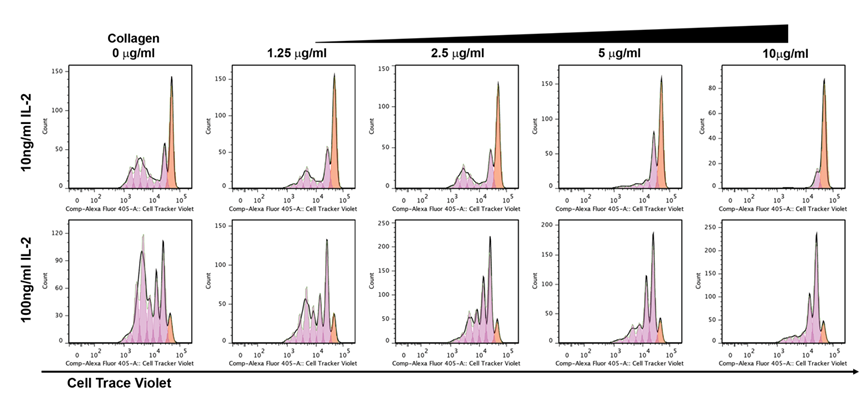Breadcrumb
- Home
- Extracellular Matrix Projects
Extracellular Matrix Projects
Tumor-infiltrating lymphocytes interact with extracellular matrix through a subset of integrins or receptors, the functional consequences of which can augment or inhibit activation or effector function. Functions elicited by extracellular matrix interactions with infiltrating lymphocyte populations are not yet fully understood, despite the ubiquitous circumstance of these interactions within in the tumor microenvironment. Our lab is interested to learn how to target or leverage these interactions to augment the endogenous immune response, enhance adoptively transferred populations, or provide better cell therapy product manufacturing starting material in a neoadjuvant setting.
One such receptor has negative signaling modalities in response to native fibrillary collagen. Our preliminary work demonstrates that a highly fibrotic stroma, such as can be found in many tumor types, significantly impairs infiltrating T cell and NK cell populations through this receptor, and may undermine cytotoxic potential against the tumor. We are conducting experiments in mice genetically modified to lack this receptor in key immune cell populations to explore this novel axis of immune suppression.
